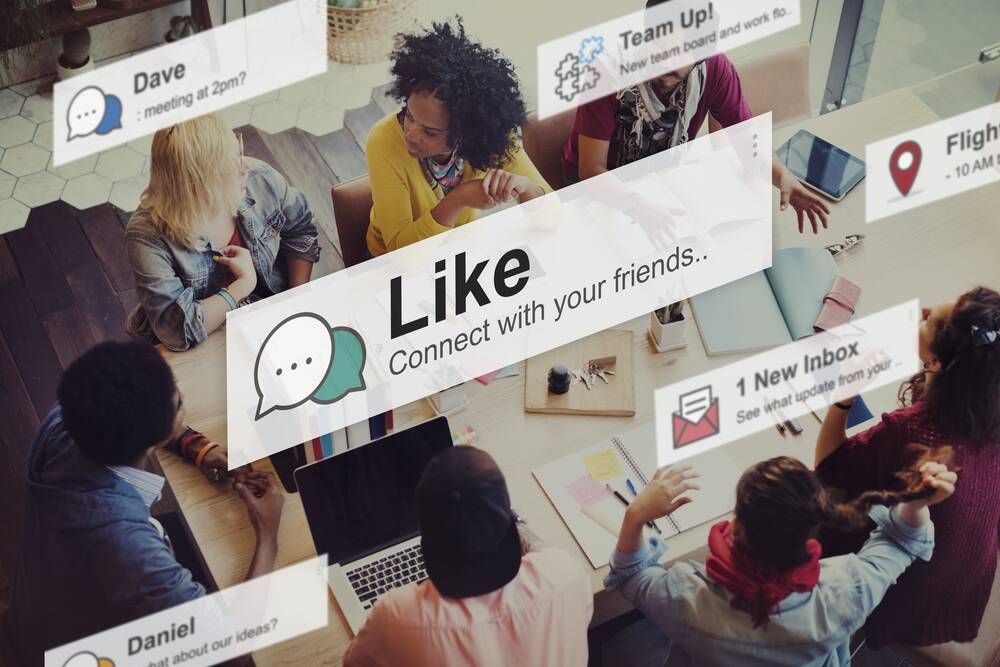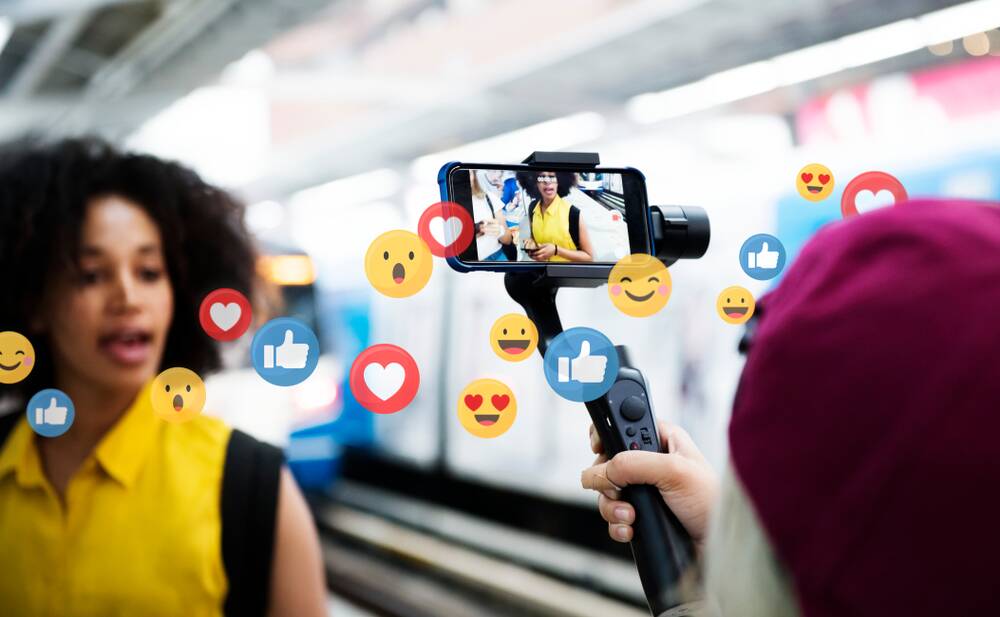Social media vs youth mental health: What is the impact?

This is branded content.
From the early days of AOL and MSN Messenger to modern platforms such as Snapchat and TikTok, social media has transformed the way we use the internet to communicate with friends and family.
We live in a world where we're often only a post of a clip away from going viral - something that can be a life-altering experience.
Understanding how social media can have an impact on the lives of young people, both positive and negative, is an essential part of understanding the allure of these powerful platforms.
For medical professionals, such as those completing ABSN online programs or psychology degrees, constructing a diagnosis is often an important part of treating the symptoms of a condition.
Let's explore the world of teens and social media - and discover the impact on many Americans' teenage and early adult years.
How many teens are online?
Social media has experienced explosive growth in the past three decades. It's hard to believe that Facebook turned 20 in 2024 - for many parents, it's simply become a part of the background of life.
Social media is surprisingly well-embedded in many societies around the world. Recent data found that as of January 2024, more than three-fifths of the world's population used some sort of social media platform.
While for many, platforms such as eta's Facebook and Instagram remain the preferred social media outlet, young people are taking a very different approach.
Research conducted by the Pew Research Center found that substantially more teens use social media platforms when compared to the population more broadly.
Their Teens, Social Media and Technology report, conducted in 2023, found that nearly 93 per cent of teens were using at least one social media platform, with platforms such as YouTube, TikTok, and Snapchat used by more than 60 per cent of teens surveyed.
Teens frequent different places than their parents - after all, a common trait amongst teenagers is their ability to revert to toddler-like traits and be embarrassed by family.
This is reflected in the data - in a world where their parents are choosing to use more mature social media platforms such as Facebook and Twitter, younger people are shunning them for environments that give them a sense of freedom, while also remaining connected to their friends.
In a world where young people find themselves increasingly connected to others through the humble smartphone, tech-savvy teens of today find themselves more closely connected to their peers than ever before.
We're rapidly approaching an inflection point - where instead of asking a teen whether they've been on social media, we may simply be asking them what platforms they are choosing to use.
Positive influences of social media
Social media can be incredibly beneficial, for many reasons.
Getting involved with a cause that you're passionate about is often a few clicks away - allowing those who have a passion for an issue such as climate change, fair working conditions, or any other number of social causes the capacity to jump online when they want to.
In general, social media can be a great way to stay in touch with distant friends or family. As a child, moving homes can be a disconcerting and uncomfortable experience - social media allows you to remain connected to the friends you've made, even if you end up moving away.
In recent years, social media has demonstrated its ability as a powerful tool for connecting people.
What the pandemic has shown us is that even when times are dire, people will come together to lend a hand - like chefs, coming together to feed communities in need in a time when it seemed impossible to continue, pop stars holding online concerts to connect with their communities, or working towards housing the homeless in cities such as New York.

The challenges facing platforms
That being said, it's essential to note that while social media is a powerful tool, it can also be misused, with potentially dire consequences.
While it can take a post to make you go viral, a single post can also cause a crisis, no matter whether you're a large drug manufacturer like manufacturer Eli Lilly, or a young person, just making videos and having fun on TikTok.
It's been well-documented that social media misuse can hurt young people's wellbeing. Social media is full of dream scenarios - maybe it's a friend's trip to Disneyland, the purchase of a home, or even a major event such as a wedding.
The reality is that social media can often portray an unrealistic standard of the world that we live in - and sometimes, it can result in feelings of resentment, despair, and FOMO (fear of missing out).
Regulators across America are closely observing the actions of social media platforms. In some states, such as Florida, legislators are actively implementing laws to limit social media access. At a federal level, a ban on TikTok has been considered for a significant period.
Social media platforms should be aware of the impacts that they can have on young people - how they choose to address them is ultimately critical to the ongoing success of these platforms.
Addressing the impacts
How can we begin to address the challenges of social media with the young people around us? After all, the teenage years can be a difficult time - sometimes, it can be difficult to have a conversation.
It's important to talk about social media, however. Having open and honest conversations about how teenagers are using social media is not only a great way to connect, but it's also a critical way to identify if there are issues.
For example, a young person who is struggling with smartphone addiction may not necessarily be open to starting a conversation. Instead, parents and trusted adults should remember to be approachable, and open.
Another strategy that parents can consider is the use of tools to set limits on device usage. With more than one-third of teens identifying that they use at least one social media platform nearly constantly, setting usage boundaries can be a useful circuit-breaker.
Finally, it's good to encourage periodic breaks from social media. Research has shown that taking a step away from social media can help address some of the anxiety that can be caused by excessive social media use.
At the end of the day, social media can be a powerful tool - and ultimately, teens and parents alike should be aware of the ways that they can best use these platforms for good.
Remember to stay safe out there, and if social media use ever begins to feel overwhelming - make sure you speak up, because there are strategies that can help.
This information is of a general nature only and should not be regarded as specific to any particular situation.


